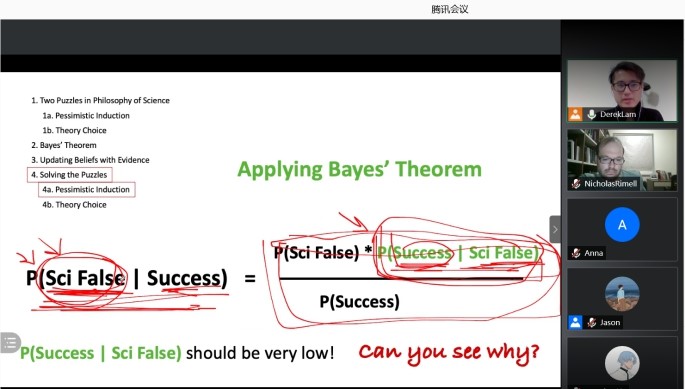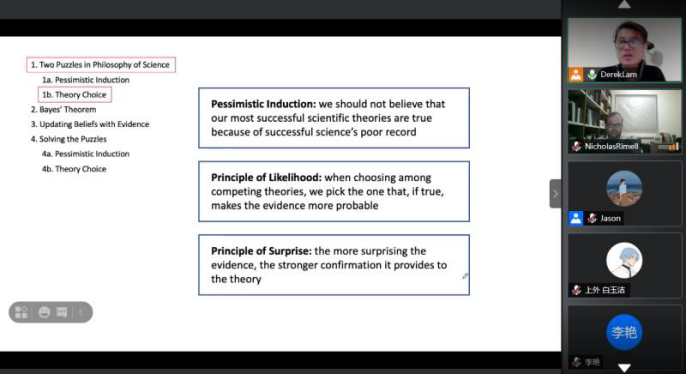From May 17 to May 25, 2021, Derek Lam, Assistant Professor of the Department of Philosophy and Religious Studies at the University of Wisconsin, was invited to offer an international demonstration base overseas quality course, "Probability and Philosophy," for the School of Philosophy and Social Sciences through the Tencent Conference. In addition, nearly 100 teachers and students from Nanjing University, Sun Yat-sen University, Northeast China Normal University, and other universities also participated in the course.

In the first lesson, Professor Lin Chand mainly put forward using probability in philosophy and proposed two difficult problems of philosophy of science and technology. One is pessimistic induction, and the other is the choice of theory. He also introduced Bayes' Theorem and used evidence to re-creat belief, thus proving the important role of probability theory in philosophy study and research. In the second lesson, the professor mainly introduced the concept of probability, which is three specific cases of frequency, actual frequency, the limit of frequency, and hypothetical frequency. In the third lesson, probabilities as degrees of belief are the main content, including secondary qualities, belief & degrees of belief, subjectivism, objective Bayesianism, and paradoxes, which were demonstrated with examples successively. Thus, it is concluded that probabilities are important for science.

The class atmosphere is active in teaching, and teachers and students actively cooperate. After each class, students asked questions enthusiastically, and Professor Derek Lam patiently answered them one by one. The lecture gives us a deeper understanding of the application of probability theory on philosophical questions and the important role Probability plays in science and technology development, providing a new perspective for all the teachers and students who attend the meeting to view philosophical, social problems. Meanwhile, it helps us apply mathematics in the philosophy of science and technology at a deeper level of understanding.
